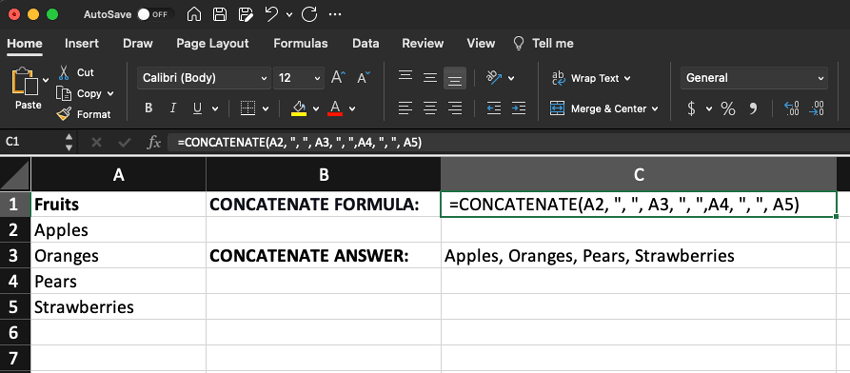Digital marketing changed how businesses advertise online by targeting ready-to-buy prospects while appealing to their interest at the right time. SEM or search engine marketing is the paid way of ranking in SERPs (Search Engine Results Pages). The right keywords identify ideal customer demand and capture lucrative market shares. Let’s discuss the best strategies to uncover high-intent keywords with SEM marketing campaigns.
Top 3 SEM Marketing Campaign Metrics
Here are the most commonly used SEM marketing campaign metrics in SEM ads.
SEM Marketing Campaign Metric #1. PPC or Pay Per Click
PPC measures the cost per every click of an ad.
SEM Marketing Campaign Metric #2. CPM or Cost Per Thousand Impressions
CPM measures the cost per increment of every one thousand views.
SEM Marketing Campaign Metric #3. CPA or Cost Per Acquisition
CPA measures the cost per every response to a specified call-to-action that results in a conversion.
Best Way to Choose PPC Keywords to Optimize SEM Marketing Campaign
Tailor SEM campaign strategy around your competitive advantage by discovering the most lucrative keywords for ad campaigns. Use advanced keyword research tools like Semrush to pinpoint the most searched high-intent keywords related to a business segment. Advanced keyword research tools identify keyword ideas, uncover search volume, competitiveness, and average bidding price of broad terms and long-tail keywords.
How Much Should You Pay for PPC Keywords in SEM Marketing Campaign?
How much to spend on SEM marketing PPC keyword campaigns depends on different factors. Including how much you are willing to bid against all the other advertisers wanting to rank for the same keywords.
Every business is unique when it comes to different marketing needs and budgets. The best way to cost-control an SEM campaign is to understand the key factors that sway your customer’s purchasing decisions. Learn more about the most effective SEM keyword campaign cost-control strategies.
Here are the top factors that drive SEM keyword cost.
Top 6 Factors that Influence Keyword Cost in PPC Marketing Campaign
- Industry trends
- Competitor activities
- Google Quality Score
- Keyword ranking costs
- Keyword competitiveness
- Customer search query preferences
PPC Keyword Research Strategy is Critical to Increase Conversion Rate and Decrease SEM Marketing Campaign Cost
Paid search through SEM keyword campaigns can get expensive and quickly exhaust the marketing budget. The key is identifying the most cost-effective and high user intent keywords that generate the most search traffic.
Here are the best SEM keyword research strategies to increase conversion rate and decrease ad costs.
Top 5 PPC Keyword Research Strategies to Increase Conversion Rate and Decrease SEM Marketing Campaign Cost
#1. PPC Marketing Long Tail Keyword Research
Long-tail keywords are extended phrases that typically yield lower search volume but provide a more precise intent behind the searched terms. Visitors using long-tail keywords in search tend to be more exact in what they are looking for, meaning there is a higher chance of conversion when the search is specific. Long-tail keywords uncover profitable niche markets without costing a fortune.
Example of Long Tail Keywords
For example, the suggested bid for the keywords “coffee mug” is about $1.60 per click. However, when you change the keywords to “best travel coffee mugs,” the suggested cost-per-click will reduce to $0.79 because you are targeting a more specific keyword.
Advantages of Long Tail Keywords in SEM Marketing Campaigns
The above long-tail keyword example shows considerable savings when there could be thousands of clicks during the ad campaign period. In addition to cost-saving benefits, long-tail keywords bring more ready-to-buy prospects because their search is more defined in terms of knowing what they want.
#2. PPC Marketing Broad Term Keyword Research
Broad term search reveals other variations of the original keywords. These are high search volume generic terms most people use to search for similar products or services. Bids for broad term keywords can become expensive and go as high as $20 per click.
Example of Broad Term Keywords
For example, when visitors look up “mugs,” their search results may yield other keywords like “cups,” “tumblers,” or “‘bottles.” While they are still relevant and highly searched, they include a broader scope of the initially intended keyword.
Advantages of Broad Term Keywords in SEM Marketing Campaign
Broad term keywords are great when going after highly searched and popular phrases. They open up new long-tail keyword markets. Also, include negative keywords in the ad campaign and combine long-tail keywords with broad term matches to improve overall SEM campaign keyword efficiency.
#3. PPC Marketing Negative Keywords Research
Negative keywords are words or phrases with multiple meanings, but some do not apply to your business. Associating with these irrelevant terms can place your ad listings in the wrong search results and incur unnecessary advertising dollars. Exclude these irrelevant negative keywords so they do not exhaust the marketing budget with unintended traffic.
Example of Negative Keywords
For example, search in Google “apple.”
Do you mean the company Apple or the fruit? That is a heteronym dilemma because this word can indicate two utterly different search intents. While Google’s search algorithm has improved significantly over the years to better understand the user intent behind the searched keywords, it is best to parse out the search categories and keywords you do not want to associate with.
Advantages of Excluding Negative Keywords in SEM Marketing Campaigns
Be sure to check keywords with multiple meanings in different industries. Eliminating the possible misleading terms or phrases help you avoid wasted clicks and improve the precision of the SEM ad campaign targeting.
#4. PPC Marketing Branded Keywords
Visitors often associate certain products with their brand-name labels. When a keyword or phrase contains a company or a brand name, it is considered a branded keyword.
Example of Branded Keywords
Branded keywords are cost-efficient opportunities to gain traffic and typically work well when strong brand marketing is established. For example, “Dawn dish soap,” “Charmin toilet paper,” or “Bounty paper towels” are all branded keywords where customers often associate the product with the brand name.
Advantages of Branded Keywords in SEM Marketing Campaigns
Including the name of your business with the keywords you are ranking for reinforces brand awareness. In competitive markets, other advertisers may already capitalize on your branded terms and dilute search traffic. Capture branded keyword opportunities by using them in multiple forms of SEM ad listings, such as Google Product Listing Ads (PLAs), text ads, or display ads.
#5. PPC Marketing Related Keyword Research
Related keywords are extensions of the original keywords. They are typically variations of keywords that expand the reach and uncover new niche markets.
Example of Related Keywords
For example, if someone is looking for “best electric car,” related keywords can include “best hybrid car,” “new electric vehicle,” or “used electric sedans.”
Advantages of Related Keywords in SEM Marketing Campaign
Related keywords are good indicators of words that the ideal prospects use to look up your business online. They help you discover high-conversion keyword combinations with lower cost-per-click.
Try a related keyword search for free with Semrush to get an accurate picture of keyword competitiveness.
A Helpful Tip: SEM Keyword Concatenation in Excel

There is an interesting function in Excel called “=CONCATENATE()”. Use “concatenation” to link multiple words together and turn them into long-tail keyword phrases. Keyword concatenation is a quick way to generate variations of keywords by combining two, three, or more words into one phrase. It is a great brainstorming exercise to explore and identify new keyword categories.

